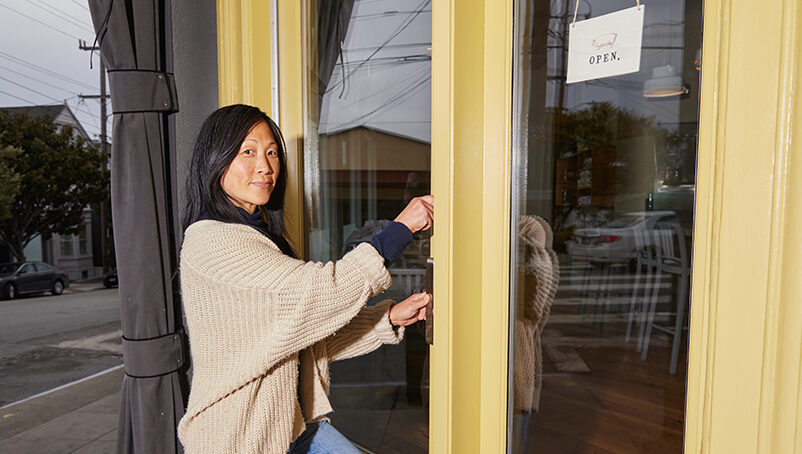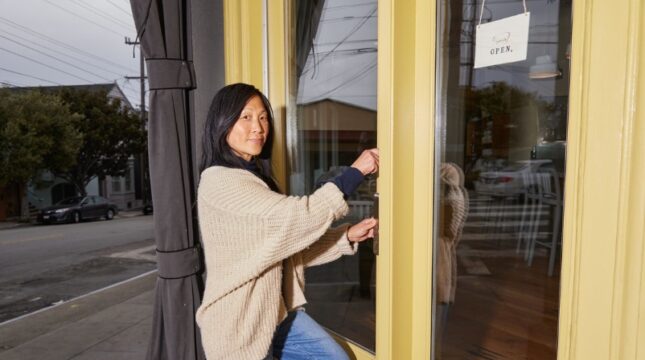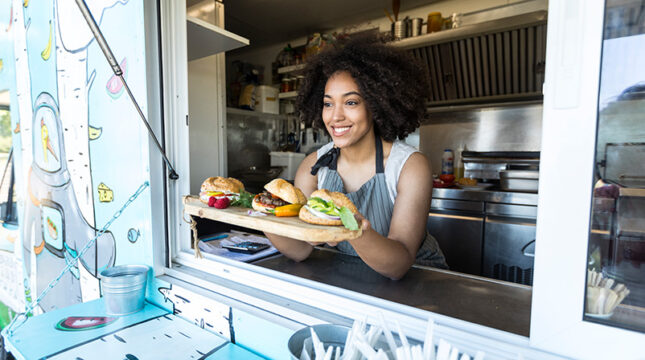1. Restaurant business license
Almost all businesses in the United States, including restaurants, need a business license to operate legally. And very often, a business license and insurance go together.
Typically, you get a new restaurant license from the city or county where you plan to open your food establishment. If you sell alcohol, you’ll need a federal license, too.
Consider the expense of a business license part of the cost of opening a restaurant. It varies by location, but generally, license costs start at around $50 but can be as much as a few hundred.
Depending on the state, your license may be good for as long as you own the restaurant. Or you may need to renew it periodically. The rules may be different for restaurants that sell alcohol versus those that don’t.
2. Employer identification number (EIN)
While it’s not exactly a restaurant permit or license, an employee identification number (EIN) is a tax ID for your business issued by the IRS.
Filing your taxes may not be your favorite part of owning a restaurant, but unless you want the IRS knocking on your door, it’s a necessary part of your restaurant business operations.
You can apply for an EIN online or fax or mail form SS-4 to the IRS.
3. Use and occupancy permit
Issued by the local zoning or building office, a certificate of occupancy shows your restaurant is up to code and meets safety requirements. You must wait until construction and building inspections, including an inspection from the fire marshal, are complete before applying for the permit.
You need a permit even if you’re taking over an existing restaurant and not doing any construction. License fees are usually around $100 but may be higher depending on your city or county.
4. Seller’s permit
New businesses that sell products and services must get a seller’s permit from local authorities. Since you’re selling food, you must apply for this permit, also called a sales tax permit or a sales tax license.
Seller’s permits typically don’t have any fees; however, you may need to put down a security deposit to cover unpaid tax if your business closes.
5. Food service license
Before you can open a restaurant, your local health department must issue a food service license. It’s sometimes called an employee health permit. This shows that your restaurant adheres to food safety guidelines that help keep patrons healthy.
The cost typically ranges from $100 to $1,000, but it can vary based on where you operate and the size of your business.
Food service licenses often need to be renewed annually.
6. Food managers certification and food handlers cards
To help prevent outbreaks of foodborne illness, many states require food service businesses to have at least one certified food manager on staff per shift.
To receive a food manager certification, you or one of your managers must take a food safety training and pass an exam.
After passing the exam, you can apply for a food manager certification with your local health department. The cost is typically around $100 to $500.
Some states also require all restaurant workers to carry a food handlers card, which is a more simplified version of the food manager certification.
7. Dumpster placement permit
You can’t run a food facility without food waste, napkins, paper towels and other trash. But you most likely will need a permit to put a dumpster outside your restaurant.
The cost varies depending on the size of the dumpster and the city or county in which you operate. Some permits start at less than $100, while others may be several hundred.
8. A permit for signage
You’re open for business and want to shout it from the rooftop. But unless that’s the only way you plan to let customers know you’re ready to serve them, you’ll need a large sign. And a permit before you hang it.
You can get a sign permit from your local building and zoning office. The cost and requirements will vary based on the type of sign you want (e.g., awning, billboard, freestanding, etc.).
9. Restaurant liquor license
You don’t have to serve alcohol at a restaurant. But if you do, you need two licenses — one from your local alcohol beverage control board and one from the federal Alcohol and Tobacco Tax and Trade Bureau.
The cost for these licenses varies widely based on your restaurant’s location; it could be several hundred to several thousand dollars. And, if you’re operating in a state with a quota on the number of liquor licenses available, be prepared to pay top dollar.
If you do decide to serve alcohol, be sure to protect your business from the liability of the actions of intoxicated customers. Liquor liability insurance could help.
10. Music and entertainment licenses
Background music can create an atmosphere for your restaurant. But it’s also subject to copyright and licensing laws. If you don’t want to risk thousands of dollars of fines, you need a license before you — and your customers — start rocking out.
You can get a music license from an organization that helps protect artists’ rights, such as the American Society of Composers, Authors and Publishers, Broadcast Music Inc. or Global Music Rights.
You can also subscribe to a music service like Rockbot or Soundtrack Your Brand, which covers your licensing requirements.
Note that live entertainment or events require a different entertainment license, usually provided (yes, for a fee) from your local city or county.
11. Restaurant permit for outdoor seating
Parklets, patios, or other outdoor seating are good ways to increase the number of customers you can serve. But you’ll need a permit to do it.
Check with the building or zoning commission in your area to find out what you need to do to meet permitting requirements. The cost for an outdoor seating area typically costs a few hundred dollars.






